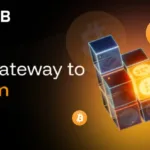The cryptographer, and for a lot of the primary candidate to be Satoshi Nakamoto, Nick Szabo, not too long ago returned to social networks and intervened in a dialogue in regards to the function of charges and knowledge limits on the Bitcoin Community, a debate that has gained relevance between builders and customers.
The dialog, initiated by the developer Callebtc, addresses how the charges have labored as a filter towards spam for nearly 17 years, whereas Szabo warns of authorized and technical dangers when contemplating modifications within the protocol, akin to the rise within the op_return restrict.
The trade started on September 27 when CallebTC revealed that charges have successfully served as a Bitcoin safety mechanism since its creation. The logic after the argument of Callebtc is that the assaults of “spam” (knowledge thought of irrelevant) They’re alienated by the price of making them, since sending a transaction in Bitcoin requires the cost of charges to miners.
Szabo responded on September 28, noting that, though these charges shield the miners, they might not supply sufficient incentives for full nodes.
With this, the creator of Bitgold may confer with the truth that there isn’t a weight of weight why Bitcoin nodes cease broadcasting transactions with arbitrary knowledge on the community, provided that They don’t obtain financial incentives of any form.
The charges shield the miners, however don’t supply sufficient discouragement to guard the whole nodes. This has at all times been an issue, after all. However rising Op_return task will in all probability worsen this drawback. It is going to additionally enhance authorized dangers.
Nick Szabo, creador de BitGold.
The cryptographer considers, then, to develop the op_return restrict, which permits to incorporate arbitrary knowledge in transactions, It may worsen the issue of spam in Bitcoin and enhance authorized publicity on the community. He insisted that the authorized danger could possibly be elevated if the information turns into extra accessible, suggesting that standardized codecs may facilitate the identification of illicit content material by authorities.
Nevertheless, Callebtc added a key touch upon September 29: «Welcome once more, Nick. Are you conscious that Op_return coverage modifications mentioned solely the printed coverage and never the consensus of the blockchain, proper? I simply need to ensure we agree on the context right here. “
Callebtc is a vital Bitcoin utility developer. He presently works on tasks akin to Bitchat and Cashu. It’s a declared detractor of Bitcoin Knots, because it finds that buyer improvement is excessively customized in a determine: Luke Dashjr.
For the developer, Bitcoin Knots and his proposals will not be critical alternate options to Bitcoin Core, the primary buyer of the protocol.
The contradiction identified in Szabo’s arguments by Callebtc means that the previous believes that the illicit materials “recorded” instantly within the chain, though undesirable in any approach, It might have much less regulatory influence than that which might be simply visualized by exterior software program to the protocol. It’s because the information within the op_return discipline are punable, that’s, they are often filtered (goal pursued by Bitcoin Knots), and since legislators and regulators would have restricted technical information to disclose what’s contained in the Bitcoin blocks.
A counter -argument is that the unlawful content material in an ordinary customary format, simply seen with customary software program, is extra prone to impress legal professionals, judges and jurors, and subsequently is legally extra dangerous, than fragmented or hidden knowledge, which require specialised software program for reconstruction. These demonstrations could be a part of the method to persuade these authorized chargeable for the defendant node operator had information of the content material.
Nick Szabo, creador de BitGold.
Even so, Szabo considers that the rise within the op_return restrict to 100,000 bytes would facilitate the distribution of unlawful content material, approaching, consciously or unconsciously, to Bitcoin Knots’ propositors, for whom the filtering of those spam transactions is a precedence.
This ongoing debate, through which Adam Again additionally participated, is a part of a broader dialogue inside the Bitcoin group on the Op_return restrict, a perform that enables knowledge to be saved within the block chain.
Presently, this restrict is established in 83 bytes per transaction, a restriction designed to stop the community from being saturated with info not associated to worth transfers. Nevertheless, Bitcoin Core will elevate the restrict to 100,000 bytes.
The choice of Bitcoin Core has generated division: whereas some see potential for innovation, others, together with Szabo, concern that facilitating using bitcoin to retailer undesirable or unlawful knowledge, affecting decentralization and attracting regulatory scrutiny.
Nick Szabo, as Cryptoics reported, is thought for his work at Bit Gold, A conceptual precursor of Bitcoin developed in 1998. The developer has a trajectory that carefully hyperlinks it with the foundations of cryptocurrencies and clever contracts.
His proposal for a decentralized digital foreign money, which didn’t depend upon central authorities, anticipated a number of components of Bitcoin design, launched by Satoshi Nakamoto.
Though it has by no means been confirmed that it’s Bitcoin’s creator, Szabo’s reappearance on this debate reinforces his affect on the evolution of the protocol, offering a technical and philosophical perspective that continues to resonate in the neighborhood.








